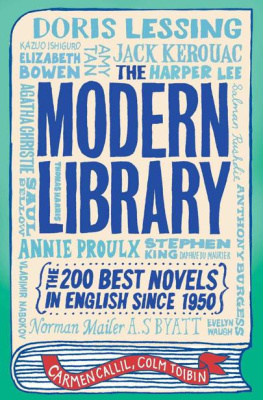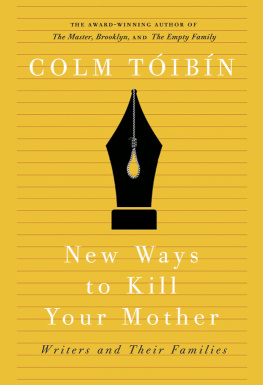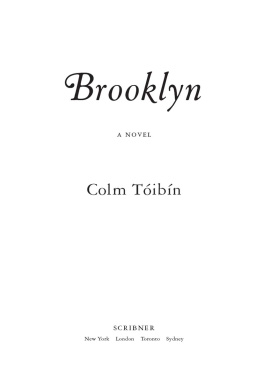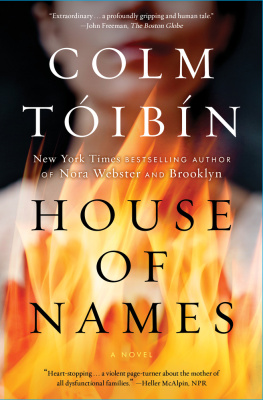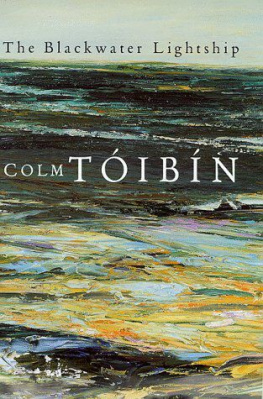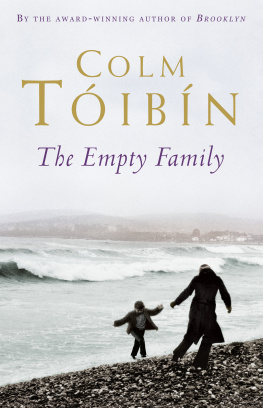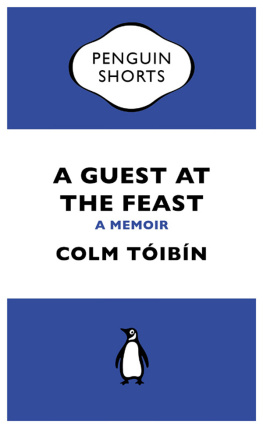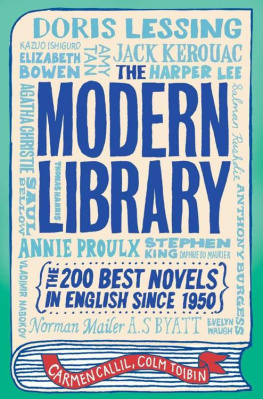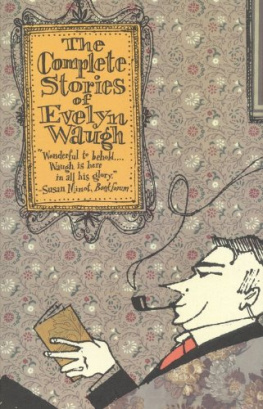Colm Toibin - The Modern Library
Here you can read online Colm Toibin - The Modern Library full text of the book (entire story) in english for free. Download pdf and epub, get meaning, cover and reviews about this ebook. year: 2011, publisher: Constable, genre: Art. Description of the work, (preface) as well as reviews are available. Best literature library LitArk.com created for fans of good reading and offers a wide selection of genres:
Romance novel
Science fiction
Adventure
Detective
Science
History
Home and family
Prose
Art
Politics
Computer
Non-fiction
Religion
Business
Children
Humor
Choose a favorite category and find really read worthwhile books. Enjoy immersion in the world of imagination, feel the emotions of the characters or learn something new for yourself, make an fascinating discovery.
- Book:The Modern Library
- Author:
- Publisher:Constable
- Genre:
- Year:2011
- Rating:5 / 5
- Favourites:Add to favourites
- Your mark:
The Modern Library: summary, description and annotation
We offer to read an annotation, description, summary or preface (depends on what the author of the book "The Modern Library" wrote himself). If you haven't found the necessary information about the book — write in the comments, we will try to find it.
Agatha Christie, Henry Green, Frank Hardy, Georgette Heyer, Sam Hanna Bell, Daphne du Maurier, Patrick Hamilton, Carson McCullers, Anthony Powell, J. D. Salinger, Ralph Ellison, Ernest Hemingway, Bernard Malamud, R. K. Narayan, Flannery OConnor, John Steinbeck, Evelyn Waugh, Mulk Raj Anand, James Baldwin, Saul Bellow, Raymond Chandler, L. P. Hartley, Rosamund Lehmann, Amos Tutuola, Kingsley Amis, William Golding, Elizabeth Jenkins, Sylvia Townsend Warner, Samuel Beckett, William Gaddis, Patricia Highsmith, Vladimir Nabokov, Janet Frame, Jack Kerouac, Elizabeth Taylor, Rebecca West, Chinua Achebe, Isak Dineson, John OHara, Alan Sillitoe, William Burroughs, Ivy Compton-Burnett, Grace Paley, Harper Lee, Olivia Manning, John Updike, P. G. Wodehouse, Joseph Heller, V. S. Naipaul, Muriel Spark, Patrick White, Maureen Duffy, William Faulkner, Doris Lessing, Edna OBrien, Katherine Anne Porter, Elizabeth Bowen, John Le Carr, Mary McCarthy, Sylvia Plath, Wilson Harris, Hubert Selby Jr., Frank Sargeson, Wole Soyinka, Margaret Laurence, Jean Rhys, Paul Scott, John Fowles, Christina Stead, William Styron, Ngugi Wa Thiongo, William H. Gass,Iris Murdoch, B. S. Johnson, Mary Lavin, Mario Puzo, Robertson Davies, Patrick OBrian, Frederick Forsyth, Mordecai Richler, Francis Stewart, Eudora Welty, J. G. Farrell, Thomas Pynchon, E. L. Doctorow, Ruth Prawer Jhabvala, David Lodge, Alistair MacLeod, Anne Rice, David Storey, Beryl Bainbridge, John Cheever, Joan Didion, Margaret Drabble, Jessica Anderson, Maurice Gee, Graham Greene, Roy A. K. Heath, Ian McEwan, Thomas Flanagan, Mavis Gallant, Nadine Gordimer, Elizabeth Hardwick, Norman Mailer, V. S Naipaul, Anthony Burgess, Shirley Hazzard, Russell Hoban, Bernard MacLaverty, Marilynne Robinson, John Kennedy Toole, Fay Weldon, William Maxwell, Alasdair Gray, Thomas Harris, Salman Rushdie, Robert Stone, Bruce Chatwin, Thomas Keneally, Alice Walker, Edmund White, Martin Amis, J. G. Ballard, Julian Barnes, Anita Desai, Balraj Khanna, Jayne Anne Phillips, Helen Garner, Anita Brookner, Cormac McCarthy, Larry McMurtry, Brian Moore, Jeanette Winterson, Richard Ford, Kazuo Ishiguro, Peter Taylor, Barbera Vine, Kaye Gibbons, Carl Hiaasen, Stephen King, Toni Morrison, Micheal Ondaatje, Francis Wyndham, Peter Carey, Raymond Carver, Pete Dexter, Elizabeth Jolley, Frank Moorhouse, Bapsi Sidhwa, Anne Tyler, Tom Wolfe, John Banville, Oscar Hijuelos, Amy Tan, A. S.Byatt, J. M. Coetzee, Micheal Cunningham, Roddy Doyle, Elmore Leonard, John McGahern, David Malouf, Alice Munro, Pat Barker, Angela Carter, Amit Chaudhuri, Bret Easton Ellis, Timothy Mo, Norman Rush, Iain Sinclair, Jane Smiley, William Trevor, Tim Winton, Eugene McCabe, Patrick McCabe, Donna Tartt, Jeffrey Eugenides, Gita Mehta, E. Annie Proulx, Will Self, Irvine Welsh, Sebastian Faulks, Vikram Seth, Jonathan Coe, Louis de Bernires, Alan Hollinghurst, P. D. James, James Kelman, T. Coraghessan Boyle, Penelope Fitzgerald, Rohinton Mistry, Margaret Atwood, Patrick McGrath, Graham Swift, Tobias Wolff, Jim Crace, Don DeLillo, Philip Roth, Charles Frazier, V. S Pritchett.
Colm Toibin: author's other books
Who wrote The Modern Library? Find out the surname, the name of the author of the book and a list of all author's works by series.

